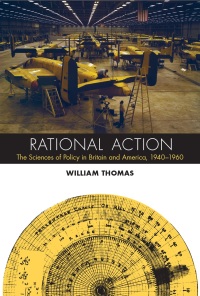Rudwick and Newman & Principe and the Recovery of Meaning December 30, 2011
Posted by Will Thomas in Chymistry, Tactile History.Tags: Charles Darwin, Isaac Newton, James Joule, Lawrence Principe, Martin Rudwick, Otto Sibum, Robert Boyle, William Newman
3 comments
One of the most pernicious obstacles to effective historical research is a phenomenon I like to call “glazing over” — a tendency to dismiss references encountered in documents as unimportant or incidental simply for a lack of familiarity with them, or interest in them. You just glaze over until you run across something you are already interested in.
I suspect glazing over is actually extremely common, but that people don’t like to discuss it, because the lack of familiarity it implies with basic facts still smacks of professional incompetence, or, more snobbishly, interest in overcoming the problem implies a banal interest in empirical history. This is too bad, because not only does systematic glazing over likely skew and limit our historiography in more radical ways than our awareness of our “inevitably subjective perspective” supposes; it prevents historians from taking steps as a profession to readmit factual dexterity back into our practices after a long period of privileging critical reflection.
In today’s post, I want to discuss tactile history that works to restore a familiar or palpable meaning to documentary descriptions of natural or experimental phenomena by actively revisiting or recreating what the text refers to.
Tacit Knowledge and Tactile History: Otto Sibum and “Gestural Knowledge” December 17, 2011
Posted by Will Thomas in Tactile History.Tags: Clifford Geertz, Gerald Geison, Gerald Holton, Harry Collins, James Joule, Louis Pasteur, Otto Sibum, Peter Galison, Robert Millikan
1 comment so far
An 1869 illustration of James Joule's simple, but difficult-to-replicate experiment demonstrating the mechanical equivalent of heat.
This post is the first in a short series on what I call “tactile history”: the practice of historical research that extends beyond examining documents to examining the objects of science and the locations they inhabited, and to the actual reenactment of historical scientific research. The objective of tactile history is to recover aspects of historical work that would not have survived in the form of a written report. In this vein, tactile history could be seen as a step beyond “notebook studies” — say, Gerald Holton on Robert Millikan’s oil drop experiments,* or Gerald Geison’s The Private Science of Louis Pasteur (1995) — which look beyond scientific publication to recover the messier day-to-day practices of scientific life.
Where laboratory notebooks merely recover otherwise hidden practices, tactile history attempts to recover something that was never expressed in any form, and is often referred to as “tacit knowledge”. This could be an inexpressible Fingerspitzengefühl (a fine-tuned hands-on knowledge), a lack of understanding of why an experiment works, pattern recognition, or an unreasoned premonition about what new scientific knowledge will look like. In the 1980s, tacit knowledge became a crucial part of the “controversy studies” literature, because it was understood to be elemental in successfully replicating an experiment. By studying controversies surrounding replication, one could uncover the many tacit preconditions underlying successful replication. (more…)
Back Up and Running Soon…. December 6, 2011
Posted by Will Thomas in Uncategorized.add a comment
*emerges from ocean, shakes off saltwater, untangles self from seaweed, sits down at keyboard*
Having let my posting schedule get away from me anyway, I’ve decided that the time was ripe to put EWP aside for the moment to do some table clearing. And, miraculously, the tables are starting to look clear! My class will be on break until the New Year after Monday, so I anticipate getting back on the posting bandwagon soon thereafter. In the meantime, if you’re interested in matters nuclear, you very much need to check out Restricted Data, a blog by Alex Wellerstein, a former colleague of mine from Harvard, as well as my successor in the postdoctoral slot at the AIP History Center. Alex has amassed a lot of archival material over the years, and is now putting miscellaneous, extremely well-explained bits of it up at a very quick pace.
*sighs, takes deep breath, jumps back into ocean…*

